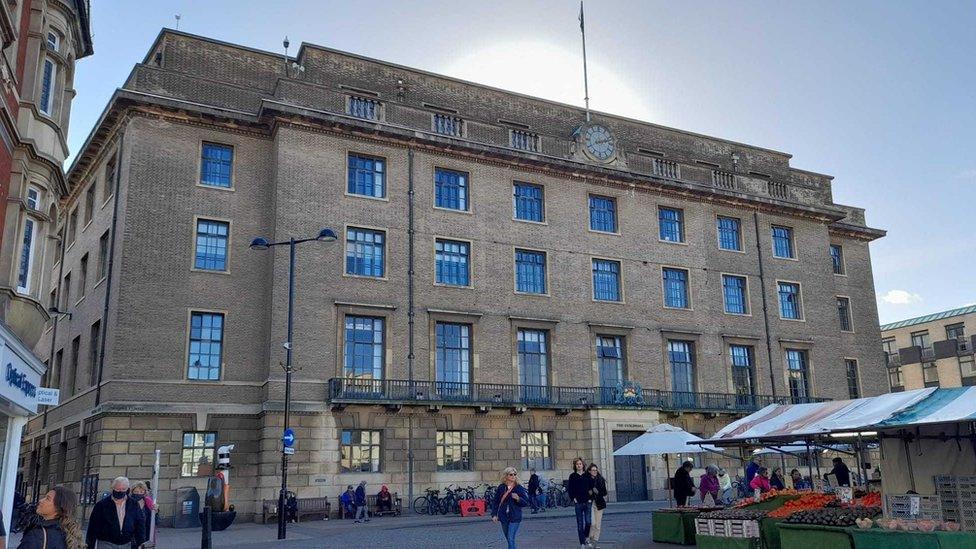Cambridge Guildhall's future as civic asset in doubt
- Published

The Guildhall in Cambridge's Market Square, owned by the city council, has been described as "not fit for purpose"
The future of Cambridge's Guildhall is in doubt after a council review found the authority had "too much space".
The city council has looked into into how to make optimum use of its buildings in the future.
It found office usage is at about a quarter of capacity and some assets are not "fit for purpose".
The Guildhall's listed building status "constrains and increases the costs" of making it a more modern place for staff to work, its report said.
The city council has four primary locations in Cambridge, the Guildhall in Market Square, Mandela House in Regent Street, 171 Arbury Road, and 130 Cowley Road, the Local Democracy Reporting Service said.
Current office usage is believed to be 20% to 25% of capacity.
'Historic symbolism'
The report said the council "currently holds too much accommodation space" for its future purposes.
"In addition to this, the current assets are not fit for purpose in respect of new ways of working, accessibility, environmental performance, space utilisation, security, condition and affordability," it said.
Previous reports have said the Guildhall in particular is "no longer fit for purpose" due to new ways of working.
Issues include poor layout and accessibility, lack of open plan space, inconsistent room sizes, poor lighting, ventilation, heating and air conditioning plus technology challenges.
The report states that the listed building status of the Guildhall "significantly constrains and increases the costs of major renovation".
The 30-year maintenance plan and bringing to net zero carbon standards is estimated to cost £13.5m for the Guildhall, £5.2m for Mandela House and £2m for 171 Arbury Road.
However, the report also said the Guildhall's "historic symbolism in respect of its civic role", was recognised and this may be reflected in the choice of preferred options for the future of the assets.
A number of options have been looked at with more detailed investigation into two options recommended.
The first is to retain the Guildhall as the main office and civic space, dependent upon the potential to ensure it is fit for purpose and the cost of this.
The second option is to investigate "as a comparator" the potential for an alternative office in or around a central location.
Councillors are due to discuss the proposals at a strategy and resources scrutiny committee next week, external.

Find BBC News: East of England on Facebook, external, Instagram, external and Twitter, external. If you have a story suggestion email eastofenglandnews@bbc.co.uk, external